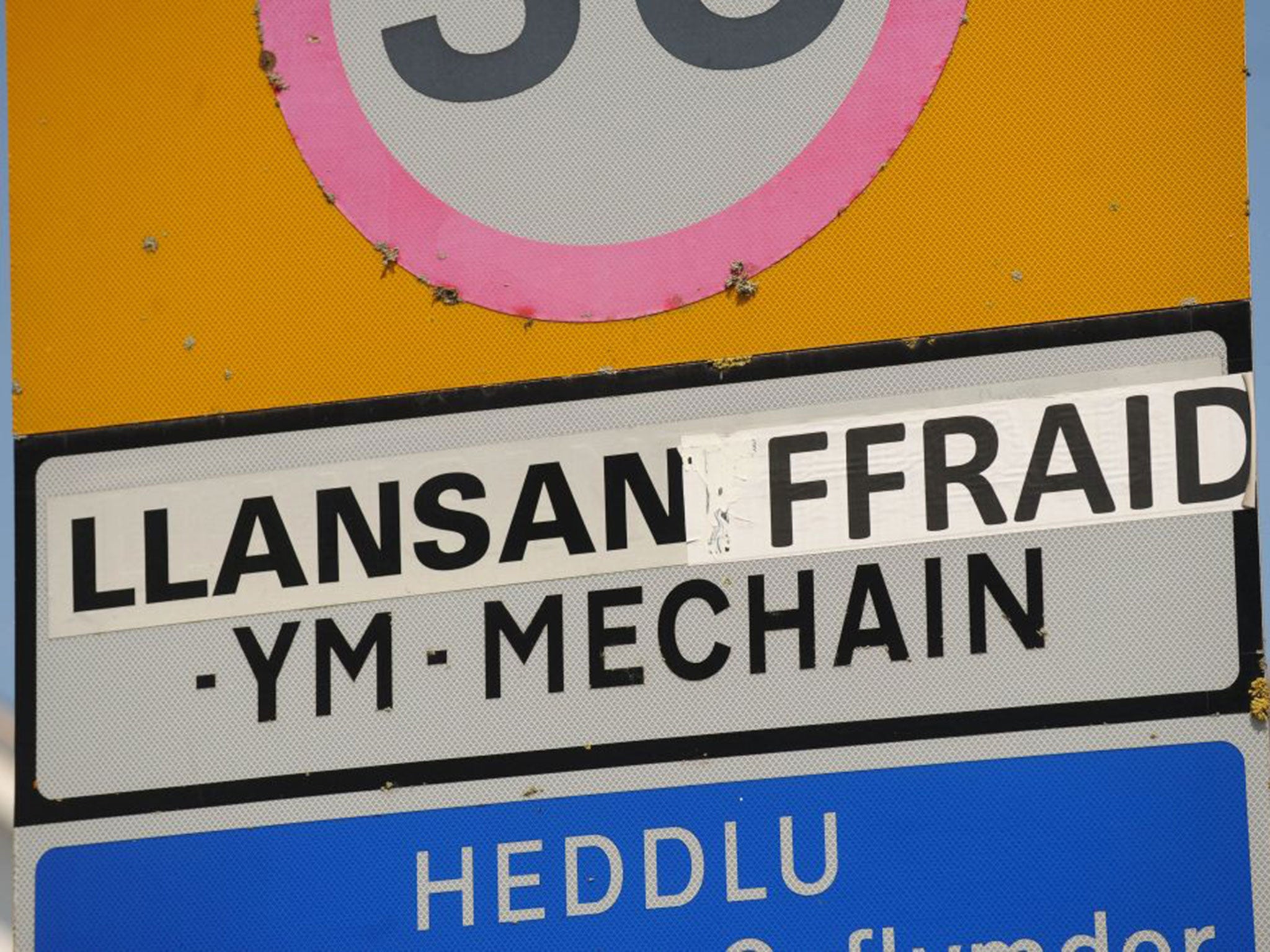Llansanffraid is now Llansantffraid. Welsh town changes its name, but can you spot the difference?
Now known as Llansantffraid, its residents hope they have resolved a dispute dating back to the mid-1800s

Your support helps us to tell the story
From reproductive rights to climate change to Big Tech, The Independent is on the ground when the story is developing. Whether it's investigating the financials of Elon Musk's pro-Trump PAC or producing our latest documentary, 'The A Word', which shines a light on the American women fighting for reproductive rights, we know how important it is to parse out the facts from the messaging.
At such a critical moment in US history, we need reporters on the ground. Your donation allows us to keep sending journalists to speak to both sides of the story.
The Independent is trusted by Americans across the entire political spectrum. And unlike many other quality news outlets, we choose not to lock Americans out of our reporting and analysis with paywalls. We believe quality journalism should be available to everyone, paid for by those who can afford it.
Your support makes all the difference.To outsiders, the Welsh village of Llansanffraid may not appear to be short of letters in its lengthy name. But after an even longer debate, one lasting centuries, the locals have won their battle to reinstate the letter ‘t’ that was removed six years ago.
Now known as Llansantffraid, its 1,100 residents hope they have resolved a dispute dating back to the mid-1800s.
The village was originally named Llansanffraid-ym-Mechain, which means “Church of Saint Bride” after the Celtic female Saint Brigit. But the name was changed 150 years ago to Llansantffraid – a decision which Welsh linguists say suggests the incorrect gender of the saint, as the ‘t’ implies a male.
Councillors voted to drop the ‘t’ once again six years ago, calling the previous move a mistake. But the change sparked anger among residents, who cast a vote two years later for the ‘t’ to be reinstated.
Powys County Council has finally acceded to their demands, passing a cabinet vote on Tuesday night in favour of reinserting the ‘t’.
“Common sense has finally prevailed,” said Montgomeryshire MP Glyn Davies. “Almost every person that I spoke with was in favour of reinstating the ‘t’.”
However, concerns have been raised about the potential cost of the change, which will mean road signs will have to be redesigned – several of which have already been vandalised with graffiti by opposing groups.
A report from the local authority stated that the total costs of sign replacement could not yet be calculated.
Emeritus Professor Hywel Wyn Owen of Bangor University, an expert on place names and orthography, told The Independent: “This particular village never used to have a ‘t’ in it – the ‘t’ is in fact not very Welsh at all, but there has been a pressure to try to have a ‘t’ inserted to indicate the word ‘saint’.
“The purpose of a place name is not necessarily to indicate the meaning of a place. England doesn’t have the same hang-ups that we seem to in Wales; the issue of name change is a sensitive one, and we must respect the wishes of the local community.”
The most recent disagreement over spelling traces back to July 1998, when the Welsh Language board requested on behalf of the national Ordnance Survey mapping company for place names in Powys county to become more consistent so as to avoid discrepancies in maps and records.
An officer was appointed to research into the standardisation of names, reporting back to the Welsh Language Board’s National Place-name Standardisation team, which has since been scrapped.
A spokesperson for the Welsh Language Commissioner said: “Ultimately it is the responsibility of the local authority to decide upon the official name”
Subscribe to Independent Premium to bookmark this article
Want to bookmark your favourite articles and stories to read or reference later? Start your Independent Premium subscription today.
Join our commenting forum
Join thought-provoking conversations, follow other Independent readers and see their replies
Comments